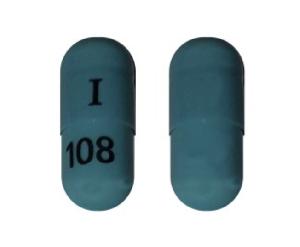Atomoxetine Interactions
There are 420 drugs known to interact with atomoxetine, along with 9 disease interactions, and 2 alcohol/food interactions. Of the total drug interactions, 88 are major, 330 are moderate, and 2 are minor.
- View all 420 medications that may interact with atomoxetine
- View atomoxetine alcohol/food interactions (2)
- View atomoxetine disease interactions (9)
Most frequently checked interactions
View interaction reports for atomoxetine and the medicines listed below.
- Abilify (aripiprazole)
- Adderall (amphetamine / dextroamphetamine)
- Adderall XR (amphetamine / dextroamphetamine)
- Benadryl (diphenhydramine)
- Concerta (methylphenidate)
- Cymbalta (duloxetine)
- Fish Oil (omega-3 polyunsaturated fatty acids)
- Flonase (fluticasone nasal)
- Lamictal (lamotrigine)
- Latuda (lurasidone)
- Lexapro (escitalopram)
- Lithium Carbonate ER (lithium)
- Metoprolol Succinate ER (metoprolol)
- Nurtec ODT (rimegepant)
- Ozempic (semaglutide)
- Prozac (fluoxetine)
- Ritalin (methylphenidate)
- Seroquel (quetiapine)
- Trintellix (vortioxetine)
- Tylenol (acetaminophen)
- Vitamin B12 (cyanocobalamin)
- Vitamin C (ascorbic acid)
- Vitamin D3 (cholecalciferol)
- Vraylar (cariprazine)
- Vyvanse (lisdexamfetamine)
- Wellbutrin (bupropion)
- Wellbutrin XL (bupropion)
- Xanax (alprazolam)
- Zoloft (sertraline)
- Zyrtec (cetirizine)
Atomoxetine alcohol/food interactions
There are 2 alcohol/food interactions with atomoxetine.
Atomoxetine disease interactions
There are 9 disease interactions with atomoxetine which include:
- narrow angle glaucoma
- cardiac disease
- glaucoma
- hypertension
- psychiatric disorders
- liver disease
- renal dysfunction
- seizure disorders
- urinary retention
More about atomoxetine
- atomoxetine consumer information
- Compare alternatives
- Pricing & coupons
- Reviews (658)
- Drug images
- Side effects
- Dosage information
- During pregnancy
- Drug class: adrenergic uptake inhibitors for ADHD
- Breastfeeding
- En español
Related treatment guides
Drug Interaction Classification
| Highly clinically significant. Avoid combinations; the risk of the interaction outweighs the benefit. | |
| Moderately clinically significant. Usually avoid combinations; use it only under special circumstances. | |
| Minimally clinically significant. Minimize risk; assess risk and consider an alternative drug, take steps to circumvent the interaction risk and/or institute a monitoring plan. | |
| No interaction information available. |
See also:
Adderall
Adderall (amphetamine and dextroamphetamine) is used to treat narcolepsy and ADHD. Includes side ...
Vyvanse
Vyvanse is a prescription stimulant used to treat ADHD in children and adults, and binge eating ...
Rexulti
Rexulti is an antipsychotic used to treat major depressive disorder, schizophrenia, or agitation ...
Strattera
Strattera (atomoxetine) is used to treat attention deficit hyperactivity disorder. Learn about side ...
Concerta
Concerta is used to treat attention deficit disorder (ADD) and attention deficit hyperactivity ...
Ritalin
Ritalin (methylphenidate) is used to treat attention deficit disorder (ADD) and narcolepsy ...
Focalin
Focalin (dexmethylphenidate) is used to treat attention deficit hyperactivity disorder (ADHD) ...
Dexmethylphenidate
Dexmethylphenidate is used for ADHD, auditory processing disorder
Amphetamine/dextroamphetamine
Amphetamine/dextroamphetamine is used for ADHD, fatigue, narcolepsy
Further information
Always consult your healthcare provider to ensure the information displayed on this page applies to your personal circumstances.


